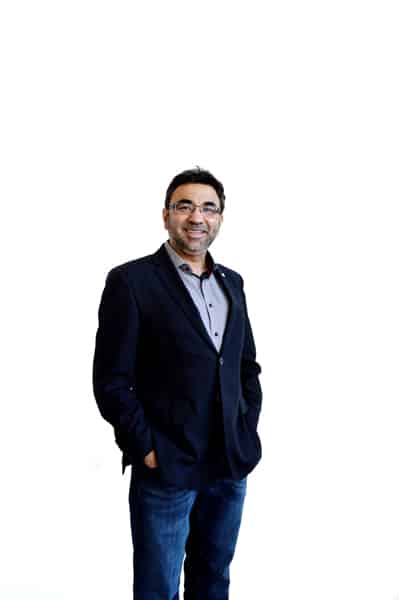With over twenty-five years of business experience and thirteen years of experience in leading HR teams, Imtiaz Shaikh discovered that HR, though focusing on the human aspects of a company, was like many operational departments: data driven.
“I found that data is the foundation for building HR credibility within the business,” he explains. “In human resources, you are dealing with people and emotion, so there are a lot of gray areas. But data removes potential biases from the equation, allowing us to analyze and focus on the most important and impactful course of action.”

Using data to highlight the needs of a business enables Shaikh and his team of HR professionals at Hitachi Consulting Corporation to demonstrate and measure the value HR brings to the company. When Shaikh started at Hitachi, his goal was to leverage technology to create efficiencies that would enable HR professionals to focus on more value-added work. He wanted to assess where employees spent the most time and found that, overwhelmingly, people spent most of their time caught in the administrative function of HR. Immediately, Shaikh recognized a need to digitalize, modernize, and rebrand HR as more than an administrative power.
For workforce planning, Shaikh’s team sought to find areas where recruiters were spending more time than needed on activities other than talking with candidates. He explains, “We wanted to take those factors out so we could prioritize their work.” They also looked at how well the business could “forecast the demand of the people” and how that interplayed with the forecast of the business. “We aligned our higher-end talent acquisition functions to be nimbler in terms of meeting those demands.” Internally, the team also took the time to assess where it could leverage talent from any region in the world.
Now, by utilizing the support of its talent within its delivery centers in India and Vietnam, Hitachi can distribute certain work based on skills, allowing recruiters to focus on recruiting faster, more accurately, and more efficiently. Naturally, the modernization of the HR department warranted a simultaneous progression of globalization processes and technology. In turn, Shaikh’s next step was to create a platform where his team could synthesize information arriving on various mediums, allowing them to respond more quickly to the needs of Hitachi Consulting’s employees.
“We were overwhelmed by different ways we were receiving information through aliases and mailboxes,” Shaikh says. “So, we introduced a service management tool that could track different types of requests that we receive from our people. Now, the HR team has a better view of repetitive needs coming into the business and can automate these requests using technology.”
“In human resources, you are dealing with people and emotion, so there are a lot of gray areas. But data removes potential biases from the equation, allowing us to analyze and focus on the most important and impactful course of action.”
Shaikh says that the service management tool, branded “Ask HR,” allows his team to leverage the new generation of technology in ways that provide value to the company. The team is even introducing a chatbot to the program, created by its own delivery centers, that will address frequently asked questions, who to contact, and policies. Shaikh’s holistic, pragmatic approach to the new wave of HR has made him a catalyst for change inside Hitachi Consulting. He initiated a departure from the company’s previous performance-management practices, re-focusing efforts to focus more closely on performance and development opportunities for employees.
In many ways, data has allowed Shaikh’s team to attract and bolster human capital more than ever before. While these transformations take time, Shaikh acknowledges the progress that Hitachi Consulting has made during his current assignment over the last three years can be attributed to the company’s “hunger for change.”
“Fundamentally, there is always a better way of doing work,” Shaikh expresses. “Using data, we were able to do things differently and become more credible and relevant to the business.” He continued, “Overall, our goal is to be better today than we were yesterday while making greater contributions to Hitachi.”

